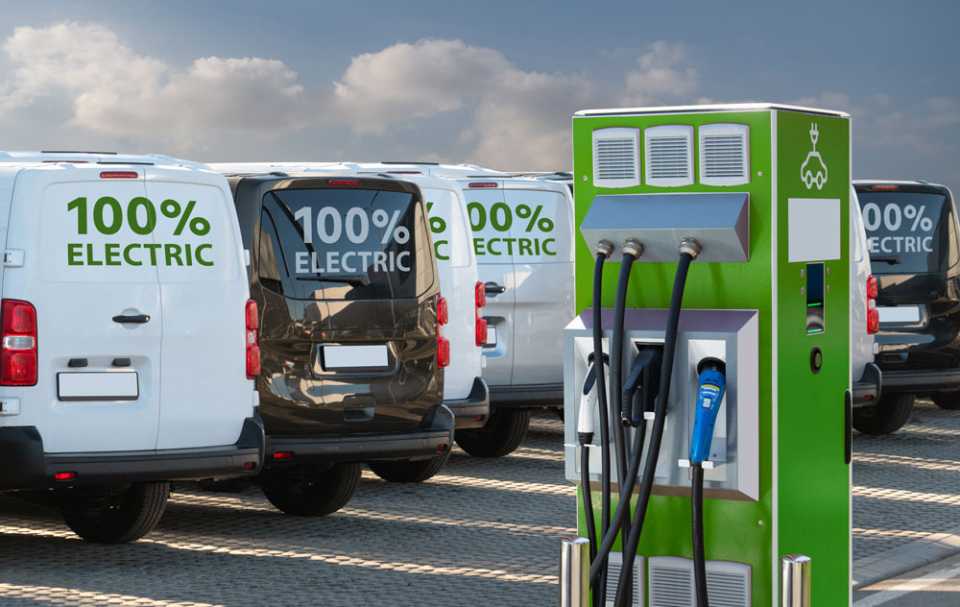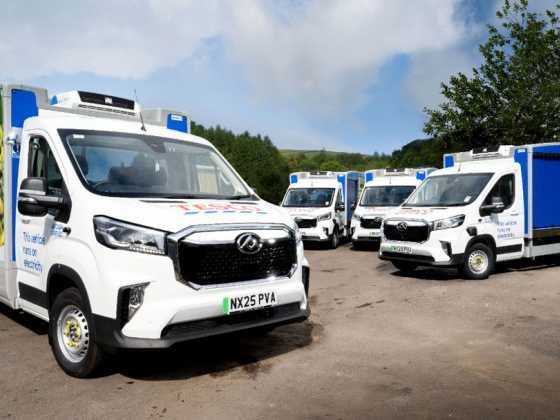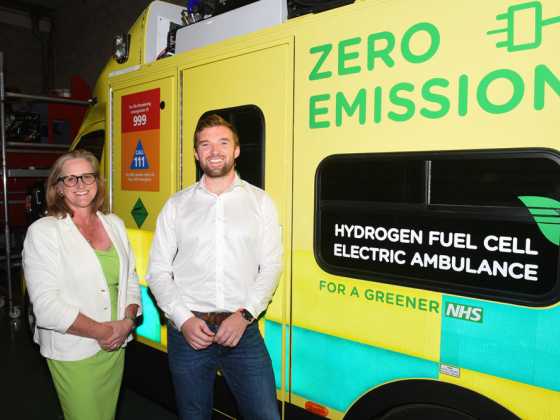Electric van and truck grant extended to 2027

The government's plug-in van and truck grant has been extended to at least 2027, Future of Roads Minister Lilian Greenwood has has announced.
The plug-in van and truck grant currently offers discounts up to £2,500 for small vans, £5,000 for large vans, £16,000 for small trucks, and £25,000 for large trucks.
Grant levels for the 2026 to 2027 financial year will be confirmed in due course.
Future of Roads Minister Lilian Greenwood said: "Extending these grants is another decisive step to power Britain’s transition to cleaner transport while backing the industries that keep our economy moving, driving new investment in EVs and helping businesses cut costs and expand.
"Every EV on our roads means healthier communities and new economic opportunities across the country, which is why grants like these are crucial to both accelerating that transition and building a resilient, competitive economy."
The grant extension gives fleet operators, ranging from major logistics firms to smaller independent businesses, the certainty they need to confidently plan their electric vehicle purchases.
John Boumphrey, UK Country Manager at Amazon, said: "We welcome the government’s continued commitment to supporting the electrification of commercial fleets. Decarbonising the transportation network is a critical step to enable us to achieve our goal to reach net-zero carbon emissions across our operations by 2040."
Checkatrade CEO Jambu Palaniappan: "This news is a big boost for tradespeople across the UK. Lower running costs, freedom from charges like ULEZ, and the ability to plan ahead with confidence - it all adds up to real, practical support. For many Checkatrade members, with help to switch to electric vans, they can keep moving, win more work, and build a future that’s both cost-effective and sustainable."
Business group Logistics UK has said that charging infrastructure investment is also needed. Head of Decarbonisation Policy Lamech Soloman said: “The Plug-in Van and Truck Grant is fundamental to the continued uptake of electric LCVs and HGVs and extending the scheme provides clarity for logistics operators looking to electrify their fleets.
“However, commercial and operational viability will always be the main driver for transport operators and alongside the cost of buying new vehicles, one of the main barriers they still face to fleet electrification is the lack of charging infrastructure. We regularly hear from our members that depot charging alone will not be enough and that there must be a mix of depot and en route charging to make operations viable.
“The sector needs greater clarity and support from government to give it the confidence to invest in these new technologies: we are urging that freight hubs and depot facilities are prioritised for grid connections to ensure confidence in the new technologies involved. It is also critical that the government does not continue to overlook the role of Low Carbon Fuels, such as HVO and biomethane, in decarbonising commercial transport and which can provide immediate Green House Gas emission savings.
“In addition, the Plug-in Van and Truck Grant should be delivered as part of a multi-year settlement, as procurement cycles for commercial vehicles can take longer than a year. Operators need certainty over the long term to plan investments and create confidence required to transition at scale.”



